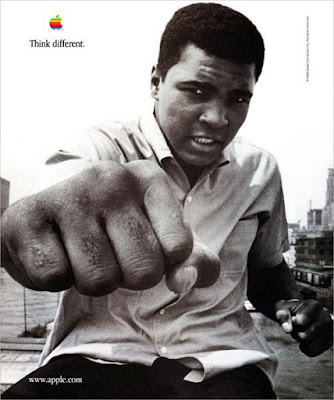[Hot] SEO 101: Short-tail and Long-tail Keywords
It's 54 degrees in Philadelphia today--the Thursday before Memorial Day weekend. For the last few weeks on the East Coast, we have endured cool (at times cold) dreary weather. Last Friday, we experienced a rare preview: temperatures hit 90 degrees. Yet this week, the temperatures have scarcely hit 60.
Now, with Memorial Day upon us, we're longing for the summer Karl Ove Knausgård describes in My Struggle Book One: "Blue sky, boiling hot sun, dusty streets."
What words conjure summer for you? Knausgård also writes a lovely portrait of summer rain:
"Oh, the raindrops that fall on the dry, hot pavement, and then evaporate, or are absorbed by the dust, yet still perform their part of the job, for when the next drop falls the pavement is cooler, the dust damper, and so dark patches spread, and join, and the pavement is wet and black."
We all have different associations with summer--and often these associations can be defined in a few key words. After all, summer iconography is rich and evocative. A single word can illicit a distinctive feeling. Say the word "beach" and we all have a distinctive feeling.
The best brands understand how to evoke a singular feeling with a simple word or phrase.
Think of Nike's "Just do it." Or Apple's "Think Different." Certain slogans are famous.
More famous, however, are the brand names: Nike and Apple. When you Google "Apple" for example, Google offers the company first--not the fruit. The brand has become so noteworthy its fame exceeds the world's most famous fruit. (You won't even find mention of the fruit on the first SERP).
SEO 101: Keywords
We're noting these examples to illustrate a simple SEO point: the power of simple words--or, in SEO-speak, keywords.
Certain SEO observers have predicted the "death of keywords" for years. For many, the word conjures negative associations. It is true, in the early days of SEO, Black Hat SEOs practiced keyword stuffing, excessively adding specific words or phrases into a site’s content--and more sinister, into a site's hidden development.
This practice was unethical--yet effective, for a time.
Today, however, search engines easily spot keyword stuffing. The practice is ineffective. The judicious use of keywords--especially long-tail keywords--is still the best way to promote a brand online.
Long-tail Keywords
Today, most SEO firms focus on the importance of long-tail keywords--short phrases or sentences that specifically match the queries of today's browsers. Long-tail keywords are important today for two fundamental reasons:
As Jayson DeMers wrote over at Search Engine Land in 2015: "The focus on keyword-based search engine optimization is dying quickly." DeMers believes long-tail keywords signal the new, easier way to rank:
"Essentially, long-tail keywords are less popular keywords because they have less search volume and less competition to rank for. Consider the following two examples: 'home remedies for bed bugs' or 'how to get rid of depression.' These are each considered long-tail keywords as compared to trying to rank for the much more competitive search terms 'bed bugs' or 'depression.'"
We agree with DeMer's assessment. As we noted in a post from 2016:
"Although shorter keywords will drive more traffic to your site, long-tail queries account for more total impressions. Simply put, people are using long-tail keywords more often."
Short-tail Keywords
A short-tail keyword is the word that most precisely conjures the image of your brand. For brands like Nike and Apple, the work is done. We merely need to say "Apple" to illicit a host of products--many of which we likely own: iPhones, iPads. MacBooks.
When building a brand, the goal is to illicit a similar response in your customers. Your brand should be known by name and product name. So, when beginning to market your brand, you must choose the right words for each.
Keywords are not dead--not by a long shot. A recent article on SEO by Entrepreneur proves the point. Of nine SEO tips, four reference keywords specifically, including the first, most essential tip: "Pick a good Keyword to Focus on."
"The first step" Brandon Turner writes, "is to simply pick the search term or phrase you want the post to show up for."
Simple? Perhaps. Brandon suggests using Google Keyword Planner to learn more about any potential keyword you might wish to use.
Read: These 9 SEO Tips Are All You'll Ever Need to Rank in Google
Brandon is speaking specifically about content. Yet keywords serve an elemental purpose. Your brand name and your product names--these are your most important keywords. Naming a brand is not an arbitrary exercise.
Imagine your ideal customers searching for your product or service. What keywords best describe your product or service? How do you want people to find you? Can you create a marketing campaign around keywords?
As we noted before:
"Short-tail keywords can work in concert with long-tail keywords. Short-tail keywords will increase your traffic while more precisely-targeted long-tail keywords will encourage your ideal customers to stick around."
What Are Your Keywords?
These are fundamental questions for any online business. The point, of course, is to choose wisely. For today's search engines, keywords still run the show.
In the meantime, we hope you enjoy summer--rain or shine. And just remember, the rain can be enjoyable, too. As Knausgård writes:
"Oh, the hot summer air that is suddenly cooled, making the rain that falls on your face warmer than your face itself, and you lean back to enjoy the feeling it gives you."
Organic SEO & Keyword Research with Stepman's SEO
If you're looking for an SEO company that understands how to effectively promote websites with carefully chosen keywords, we suggest contacting our sponsor, Stepman's SEO: 215-900-9398 Stepman's SEO combines traditional marketing methods and organic SEO--with an emphasis on natural website optimization--to design thoughtful, inspiring, and effective content marketing campaigns.
Now, with Memorial Day upon us, we're longing for the summer Karl Ove Knausgård describes in My Struggle Book One: "Blue sky, boiling hot sun, dusty streets."
What words conjure summer for you? Knausgård also writes a lovely portrait of summer rain:
"Oh, the raindrops that fall on the dry, hot pavement, and then evaporate, or are absorbed by the dust, yet still perform their part of the job, for when the next drop falls the pavement is cooler, the dust damper, and so dark patches spread, and join, and the pavement is wet and black."
 |
| Photo Source: Secret Forts "Full on Summer" |
 |
| Photo Source: Secret Forts "Full on Summer" |
Think of Nike's "Just do it." Or Apple's "Think Different." Certain slogans are famous.
More famous, however, are the brand names: Nike and Apple. When you Google "Apple" for example, Google offers the company first--not the fruit. The brand has become so noteworthy its fame exceeds the world's most famous fruit. (You won't even find mention of the fruit on the first SERP).
 |
| "Think Different"--the famous marketing campaign from Apple--the company, not the fruit. |
SEO 101: Keywords
We're noting these examples to illustrate a simple SEO point: the power of simple words--or, in SEO-speak, keywords.
Certain SEO observers have predicted the "death of keywords" for years. For many, the word conjures negative associations. It is true, in the early days of SEO, Black Hat SEOs practiced keyword stuffing, excessively adding specific words or phrases into a site’s content--and more sinister, into a site's hidden development.
This practice was unethical--yet effective, for a time.
Today, however, search engines easily spot keyword stuffing. The practice is ineffective. The judicious use of keywords--especially long-tail keywords--is still the best way to promote a brand online.
Long-tail Keywords
Today, most SEO firms focus on the importance of long-tail keywords--short phrases or sentences that specifically match the queries of today's browsers. Long-tail keywords are important today for two fundamental reasons:
- Today's browsers often use voice search to ask longer more complicated questions, which require longer more complicated answers--not single words, but phrases or sentences.
- Today's browsers are more savvy; many understand how to search for precise information, which requires more precise answers--again, not single words, but phrases or sentences.
As Jayson DeMers wrote over at Search Engine Land in 2015: "The focus on keyword-based search engine optimization is dying quickly." DeMers believes long-tail keywords signal the new, easier way to rank:
"Essentially, long-tail keywords are less popular keywords because they have less search volume and less competition to rank for. Consider the following two examples: 'home remedies for bed bugs' or 'how to get rid of depression.' These are each considered long-tail keywords as compared to trying to rank for the much more competitive search terms 'bed bugs' or 'depression.'"
We agree with DeMer's assessment. As we noted in a post from 2016:
"Although shorter keywords will drive more traffic to your site, long-tail queries account for more total impressions. Simply put, people are using long-tail keywords more often."
Short-tail Keywords
A short-tail keyword is the word that most precisely conjures the image of your brand. For brands like Nike and Apple, the work is done. We merely need to say "Apple" to illicit a host of products--many of which we likely own: iPhones, iPads. MacBooks.
When building a brand, the goal is to illicit a similar response in your customers. Your brand should be known by name and product name. So, when beginning to market your brand, you must choose the right words for each.
Keywords are not dead--not by a long shot. A recent article on SEO by Entrepreneur proves the point. Of nine SEO tips, four reference keywords specifically, including the first, most essential tip: "Pick a good Keyword to Focus on."
"The first step" Brandon Turner writes, "is to simply pick the search term or phrase you want the post to show up for."
Simple? Perhaps. Brandon suggests using Google Keyword Planner to learn more about any potential keyword you might wish to use.
Read: These 9 SEO Tips Are All You'll Ever Need to Rank in Google
Brandon is speaking specifically about content. Yet keywords serve an elemental purpose. Your brand name and your product names--these are your most important keywords. Naming a brand is not an arbitrary exercise.
Imagine your ideal customers searching for your product or service. What keywords best describe your product or service? How do you want people to find you? Can you create a marketing campaign around keywords?
As we noted before:
"Short-tail keywords can work in concert with long-tail keywords. Short-tail keywords will increase your traffic while more precisely-targeted long-tail keywords will encourage your ideal customers to stick around."
What Are Your Keywords?
These are fundamental questions for any online business. The point, of course, is to choose wisely. For today's search engines, keywords still run the show.
In the meantime, we hope you enjoy summer--rain or shine. And just remember, the rain can be enjoyable, too. As Knausgård writes:
"Oh, the hot summer air that is suddenly cooled, making the rain that falls on your face warmer than your face itself, and you lean back to enjoy the feeling it gives you."
Organic SEO & Keyword Research with Stepman's SEO
If you're looking for an SEO company that understands how to effectively promote websites with carefully chosen keywords, we suggest contacting our sponsor, Stepman's SEO: 215-900-9398 Stepman's SEO combines traditional marketing methods and organic SEO--with an emphasis on natural website optimization--to design thoughtful, inspiring, and effective content marketing campaigns.